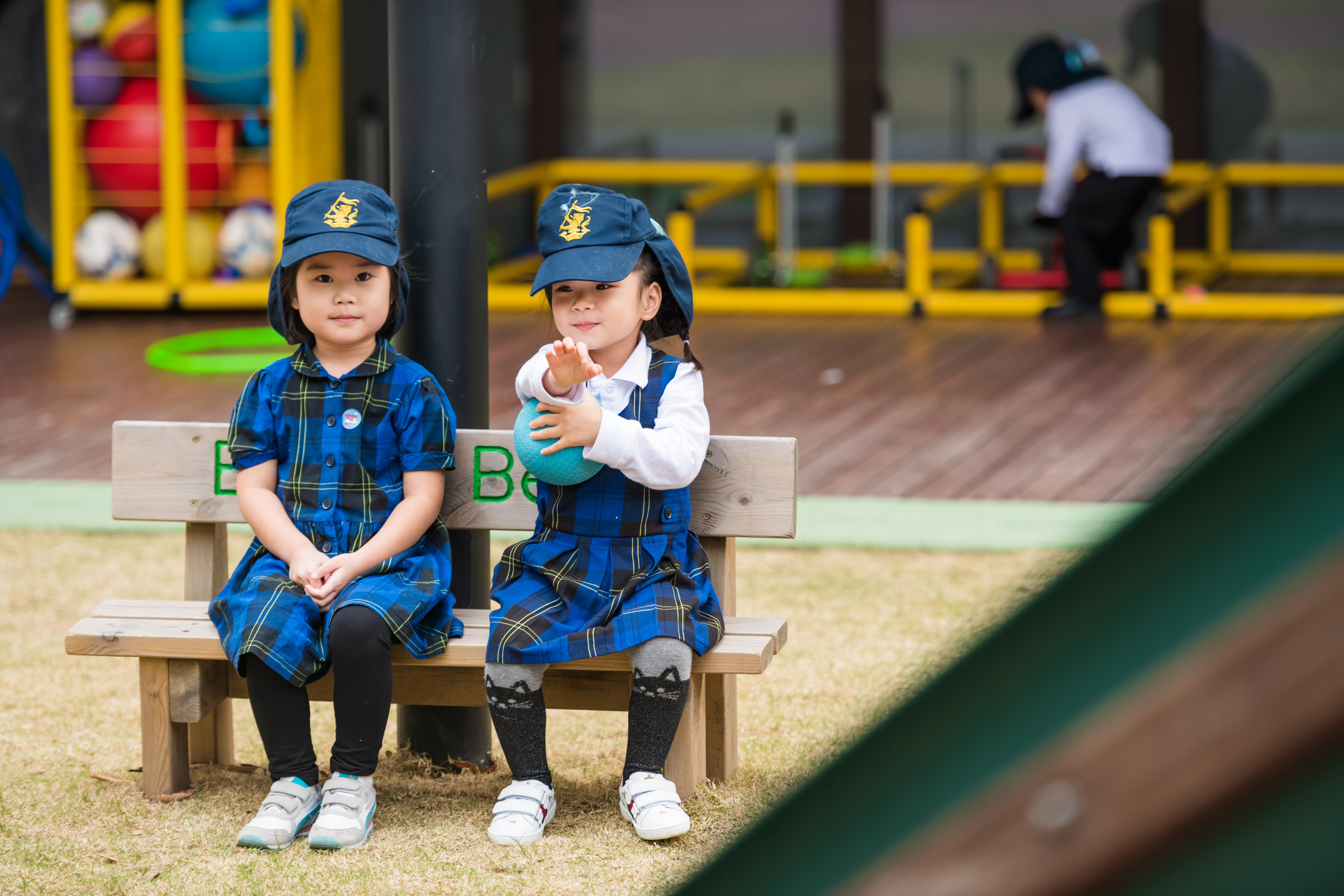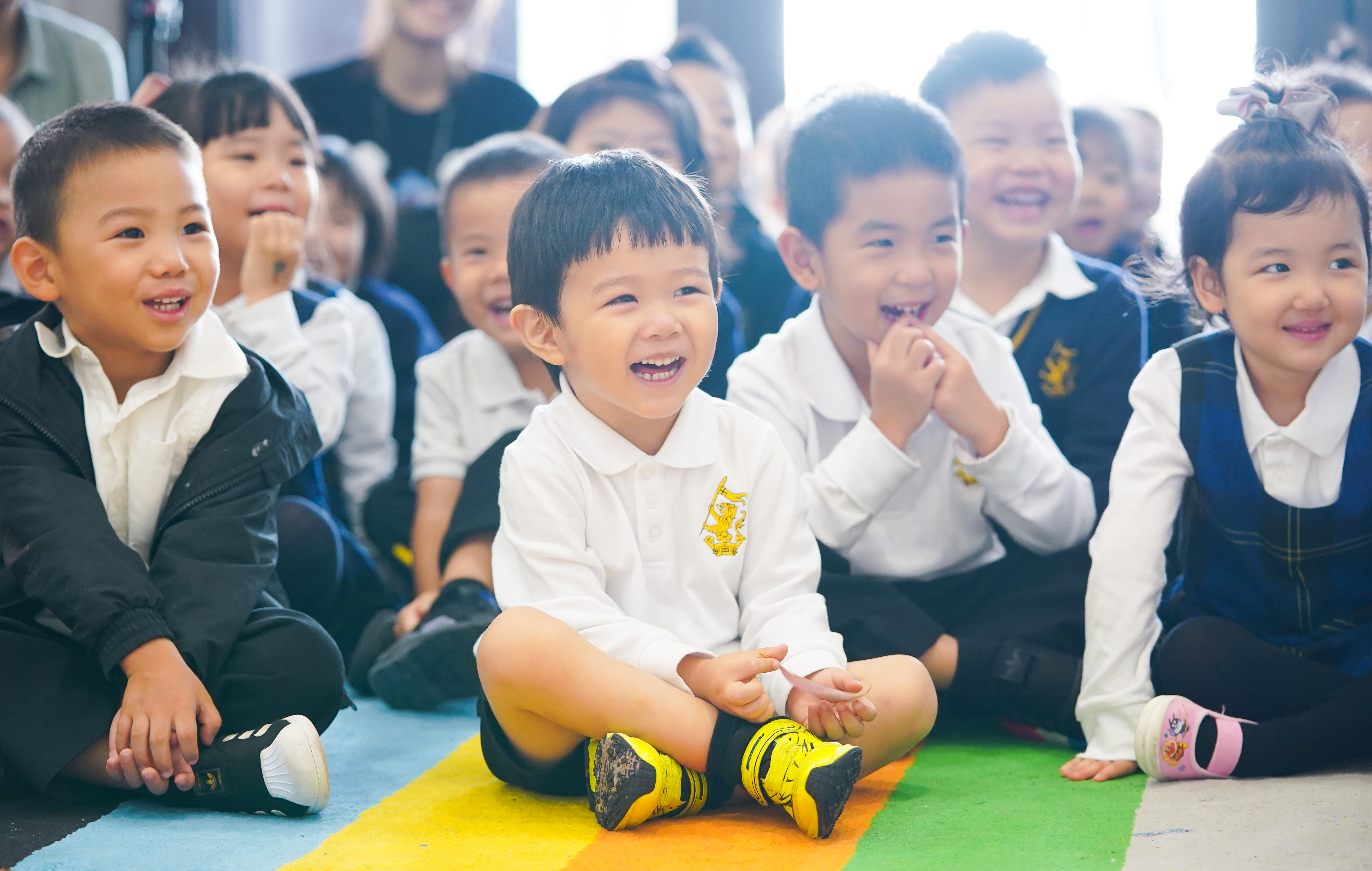
Have you ever read the comic series Father and Son created by German cartoonist E. O. Plauen? In one of the popular stories: ‘The kids are fighting and the parents are quarrelling’, two children pour out their woes respectively to their fathers after fighting with each other. While the two fathers continue to quarrel, defending their sons, the two children are already reconciled and are playing together again.

For pre-schoolers, their ability to express themselves has not yet fully developed, restricting their ability to communicate with others efficiently. Moreover, their thinking patterns are still in the ‘self-centred’ stage, where they can only consider a question from their own perspective without necessarily paying attention to others or showing high levels of empathy. Neither do they have the ability to accept or recognise others’ opinions at such a young age. Hence, any conflict with their peers should be seen as a conditioned reflex to protect themselves.
Frequently, they will forget any argument or sense of displeasure that happened five minutes ago and will carry on playing with whoever they disagreed with as if nothing had happened. This is a normal psychological characteristic of young children. Through the process that starts from initiating the conflict to resolving it, they quickly learn how to understand and maintain relationships properly.
As adults, we should be aware that there is an essential difference between conflicts undertaken by children and those of adults. Children’s fights are more like a kind of play, an essential learning process that teaches them the fundamentals of how to get along with others.
 What should parents do when observing children’s conflicts?
1.Judge whether it is a ‘real conflict’
Although children may sometimes pull their peers’ arms or give them a slight shove, we need to know that usually they do not do this on purpose or mean to cause any conflict. It is likely that they may hurt their peers accidentally, because they do not know their own strength. As parents, we should remind our children that they need to protect themselves while avoiding hurting hurt others when playing games. Additional attention should be paid to safety and security.
For children with an open personality, we need to nurture their sense of equality and respect. For children who are shy and introverted, a comfortable and relaxing environment should be created to motivate them to express themselves confidently.
What is more, we also need to teach them to voice their inner feelings directly, which can help them to stop any behaviours that they may make them feel uncomfortable. For example, children can say: “I do not like it when you pat my shoulders.” Or, “You are hurting me. Please stop doing this.” Instruct children how they can handle exceptional situations in advance and encourage them to resolve disagreements by themselves. The key points are:
What should parents do when observing children’s conflicts?
1.Judge whether it is a ‘real conflict’
Although children may sometimes pull their peers’ arms or give them a slight shove, we need to know that usually they do not do this on purpose or mean to cause any conflict. It is likely that they may hurt their peers accidentally, because they do not know their own strength. As parents, we should remind our children that they need to protect themselves while avoiding hurting hurt others when playing games. Additional attention should be paid to safety and security.
For children with an open personality, we need to nurture their sense of equality and respect. For children who are shy and introverted, a comfortable and relaxing environment should be created to motivate them to express themselves confidently.
What is more, we also need to teach them to voice their inner feelings directly, which can help them to stop any behaviours that they may make them feel uncomfortable. For example, children can say: “I do not like it when you pat my shoulders.” Or, “You are hurting me. Please stop doing this.” Instruct children how they can handle exceptional situations in advance and encourage them to resolve disagreements by themselves. The key points are:
 Every child has their own internal methods of learning how to get along with others. It may be difficult for adults to understand, but we also should respect their thoughts and opinions while giving them some license for resolving conflicts using their own instinctive methods. We believe that this will help them make more friends while encouraging them to be more responsible, generous and kind.
Every child has their own internal methods of learning how to get along with others. It may be difficult for adults to understand, but we also should respect their thoughts and opinions while giving them some license for resolving conflicts using their own instinctive methods. We believe that this will help them make more friends while encouraging them to be more responsible, generous and kind.